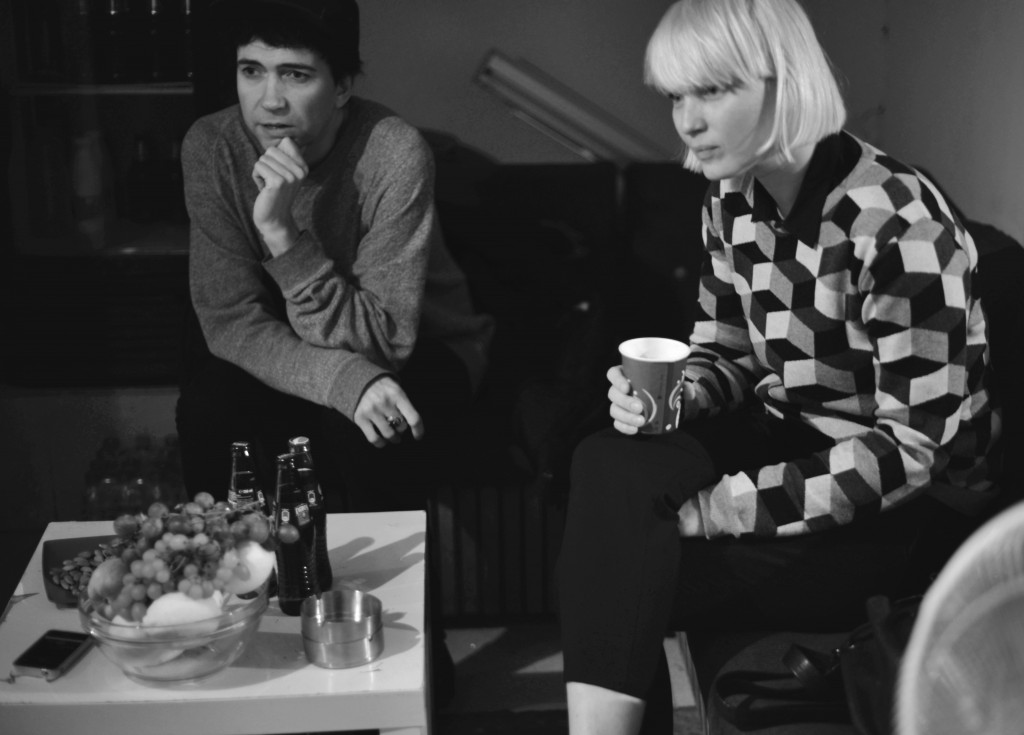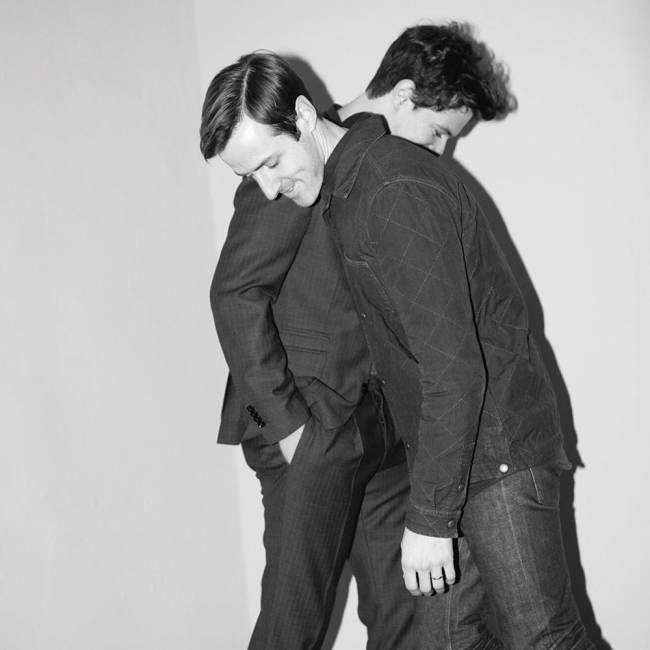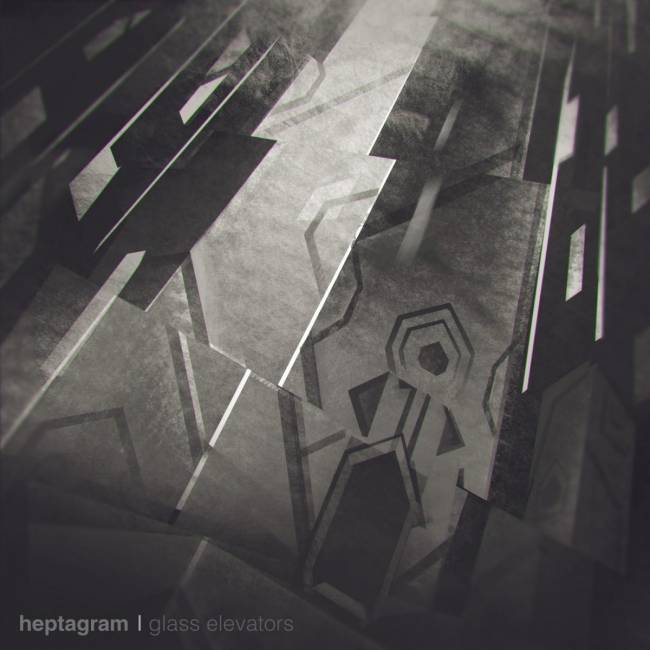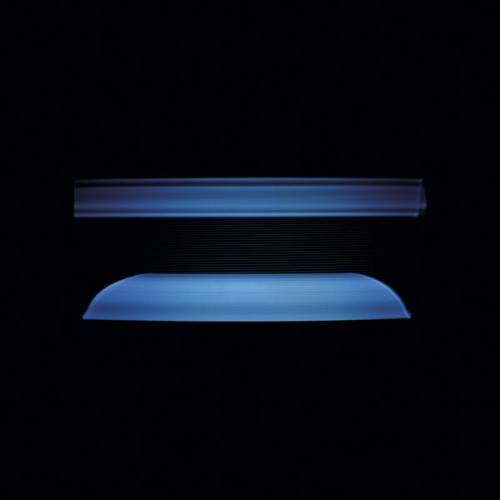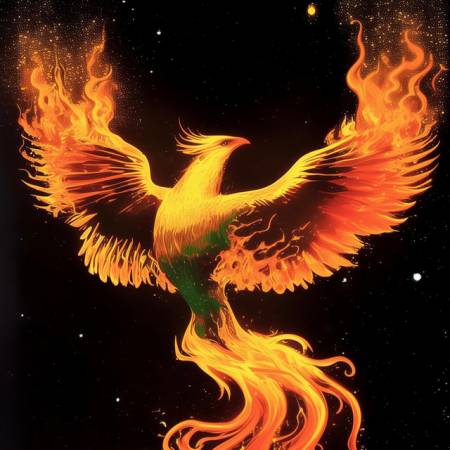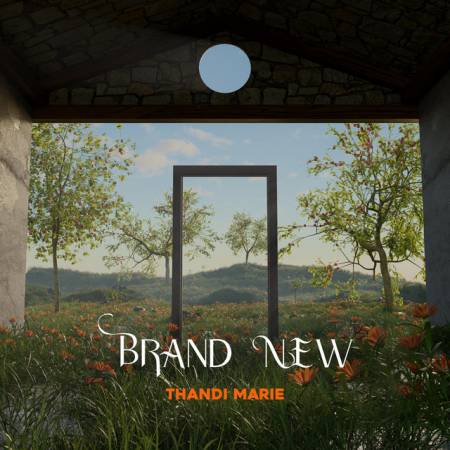During their European tour to promote their seventh album Pe'ahi, I had the amazing chance to sit down for an interview with The Raveonettes. Sune Rose Wagner (multi-instrumentalist, vocalist, and songwriter), Sharin Foo (bass guitarist and vocalist) and I (a huge Raveonettes fan and Stereofox interviewer) had an interesting discussion about the music today, Pe'ahi, and the dark side of Los Angeles.
My first question is for you, Sonne. In several interviews I've heard you mention that you prefer to listen to hip-hop above rock, because you consider it to be more innovative. Why do you think rock music lags behind in this regard?
Sune: I think it's a genre that's been around longer than most musical genres and most of the stuff has already been done. Also, I don't think that rock people are very interested in renewing it, I think they would just rather sound like their idols. So it has gotten kind of boring.
Sharin, do you listen to hip-hop as well?
Sharin: Not really, I mean I listen to some, but I am not traveled in the hip-hop genre.
Do you think there is a certain level of pretentiousness to rock'n' roll which prevents it from being more innovative. Maybe it's due to the fact that a lot of people are too eager to label themselves as “indie” or “alternative”?
Sune: Yeah, I think it has a lot to do with it. Many people get into bands, just because they want to be in a band. And I don't think rock music is just that interesting, especially compared to other genres that are striving to push boundaries. It doesn't really happen within the rock genre that much, unfortunately.
And do you think music overall is getting better or is it getting worse?
Sharin: I don't think you can generalize like that. Bjork just released a new album and she is know for being an innovator. It depends more on the individual artist, I think. There are endless possibilities when you work with music. It is a matter of quality song writing and ways of conveying emotions. I personally don't feel it has to be innovative to be a great experience. You can put things in the innovative box, but there are also things that are provocative, there are different ways music can appeal to you and can evoke feelings. Depends on what you're looking for.
What role do you think online media, such as YouTube or Soundcloud, has in music development and quality? The fact that anyone - from heavily produced commercial artist to an independent basement musician can put their music out there, does it have a positive or a negative effect on the industry?
Sune: A little bit of both, probably. For a musician, it is great - you can get your stuff out there, you don't have to be 'the lucky one' to get a record deal or anything. On the other hand, there is really no quality filter. You used to have to be very good to even be considered of recording. Now you don't have to be - anybody who can play a little bit of music can release an album these days.
Sharin: But also there is no big producer guy that can say what is good and what is not on quality level. It might take a lot of time to find the good things for yourself, but I like the fact that it is up to you and there is no one determining what what should and shouldn't be released.
In this sense, what do you think the role of the producer and label is? There is overly produced music, which doesn't necessarily mean bad, but doesn't it take away from the "honesty"of the art?
Sharin: The best producers can refine the band and find the core and heart of their music. And bad producers can fuck it all up (laughs). Things that are overproduced can be awful and they can also be mind blowing. And the great thing about art and music is that it is all individual and it's all about what speaks to you.
Your last album Pe'ahi is your seventh, how do you manage to keep the balance and the productive work between the two of you for such a long period of time? You sound very much in sync and appear to be in sync on stage, are you always in sync creatively?
Sune: Our approach is not very traditional. I think most bands go into a rehearsal room for an year or so, and jam out some songs, and eventually they will play them live and see how people like them, and then they will record them. That doesn't happen with us. I make up all the songs and then we discuss what we want, what we like about them and what we don't, and when we have enough songs, we'll do an album. No one has heard those songs before and so the first time we present them is on tour. We have no idea how people are going to react, we never test the songs on people in advance. We almost don't know if we can play them live (laughs). That's the challenge we go through.
How scary is the very first live show when you go on a new tour?
Sune: Very. We probably could save ourselves the nerve wrecking moments, but we don't like rehearsing that much. We always have just two or three days to learn the songs and then almost instantly we have to perform, so it is super nerve wrecking. And the first couple of shows are usually not that good (they both laugh). I am just being honest about it. Then after a while we get in the groove, we find our way, and we become really, really good at it, I think. Now we feel very comfortable playing the songs and it's fun.
This album is very different, it has a more rough sound to it and more instruments and effects have been added. Was this a calculated decision or do you just felt it in this direction?
Sune: It was a completely conscious decision. I have to say that it was one of those albums that we knew what we wanted right from the start. There wasn't much to “find out”, so to speak, it was kind of already here, we just needed to get “it” out there. It was a pretty clear picture from the start.
Has this been the case with all your albums?
Sune: Not at all, it is usually very different.
What is your most “spontaneous” album?
Sharin: I don't know about spontaneous, but the hardest record was Lust Lust Lust as far as I remember (laughs). It was quite a long process.
Sune: Yeah (laughs). That took a long time.
Sharin: I think generally we try to be quite spontaneous, in the sense that we try to be in the moment when we record and then on tour.
Also Pe'ahi's artwork is very different. I noticed the knife is a repetitive motif also throughout the lyrics and in the videos. What's the significance of the blade?
Sune: We wanted to see if it is possible to find a striking image that everybody can relate to and recognize, and this image sort of sums up what's inside the package. There is a lot of danger to the knife, there is violence associated with it. But that particular knife is very beautiful, too, a vintage switchblade. I think it's sexy (laughs). So it is like all the elements of the album combined in that one image.
Do you read reviews about your music? I mean, it is inevitable for people who review an album to add their own meaning to it. Does it annoy you, do you think people “get it”, or do you rather leave it to the listener to find what they want?
Sharin: Anyone should have their own perspective and feel free to interpret the music as they feel it. The only thing that bothers me when I read a review is when I feel the reviewed hasn't really listened to the album – you can always tell if that's the case. The same with live show reviews – I am annoyed when they are just recalling the sequence of the songs, but not really the vibe and atmosphere of the show. But I love reading interesting reviews, where people are honest about what they have felt and they talk about the music in an intelligent way.
Sune: I don't read reviews at all (laughs).
You have a very different perspective towards L.A. That is usually a place associated with positive vibes, bright colors, surfing, happiness. But your L.A., in your videos, in your “making of the album” film, with the album artwork, seems to be quite dark and a pessimistic. Is this how feel about L.A.?
Sune: Yeah, it is one of those places that can be very beautiful and in pastel colors. But in many ways it is a place where people come with their dreams and most of them leave with their dreams shattered. In that sense it is a horrible place. There is an enormous number of homeless people and heroin addicts, many people move away from LA to get away from these things.
Sharin: Yeah, but it is also a happy place (we all laugh). There's the beach, and the mountains, and the ocean...
Sune: Well, if you're in tune with the city and if you work there and you're doing good, it is a wonderful place to be.
Would you live anywhere else?
Sune: Yeah, for sure (laughs) . If I have a really nice place in London, I would live there one day.
Sharin: I have lived in London and I would probably never go back (we laugh). I liked it, but I got too much of it. I would go back to Denmark. It's great to be out in world and experience something bigger, but I would love to go back to Denmark eventually.
See our live report of their show in Sofia, Bulgaria and more. Let us know who else would you like us to interview in the comments below.
Stay up to date.
New music and exclusive updates in your inbox weekly.
